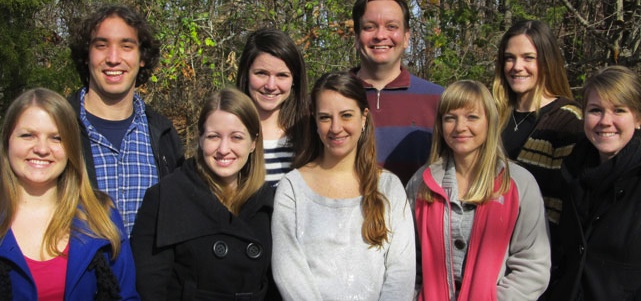Courtesy of the Oxford Eagle
The University of Mississippi’s Clinical-Disaster Research Center in the Department of Psychology is not just about educating students, it’s making a big impact on the community with a small budget.
The new center has a budget of $29,663, which was approved in October 2012 by the state College Board. These few dollars will help the center build on the work already done by researchers in the state to assist those who have survived a disaster.
“Disaster mental health is a relatively new field of psychological science and practice as it relates to disaster preparedness, impact and recovery,” said Dr. Stefan Schulenberg, director of the center.
Schulenberg has 16 years of training and experience working within the disaster mental health field. He moved to Mississippi in 2002, and when Hurricane Katrina hit three years later, Schulenberg was part of a multidisciplinary group that collected data on the coast on how people were handling the trauma. Schulenberg’s team was again part of mental health efforts on the coast after the BP Deepwater Horizon disaster of 2010.
BP gave $12 million to the Mississippi Department of Mental Health in response to the oil spill. The state developed a grant program, distributing the funds to 19 mental health facilities providing therapy, training and outreach to Mississippi coastal residents affected by the technological disaster.
Schulenberg consulted with the state Department of Mental Health, leading a team of graduate students and faculty to collect data to determine the amount of services being provided, how many people received services, and how people were responding to the disaster.
Still working
While the 2-year contract expired in June, the team continues to analyze the data and disseminate the findings so that the effects of the Gulf Oil Spill on the mental health of Mississippi coastal residents may be better understood.
The importance of their work during the spill brought to light the need to incorporate more of the team’s work into the classroom.
“Throughout the Gulf Oil Spill research it seemed apparent that the next logical step was to establish an identity, an integrated purpose bringing together research, teaching and service efforts” Schulenberg said. “With the center, we hope to continue our work raising awareness of an important area that many people don’t often think about.”
This spring, Schulenberg will teach an undergraduate course, Disasters and Mental Health, that emphasizes this need. He plans to develop a graduate seminar of the same course in the future and to continue to build the center with a focus on training and education.
“The graduate students in our clinical training program are getting that training already but this means having something more formal in place,” Schulenberg said.
While physical threat is often the first emergency responders’ concern, the effects of trauma on mental health often go unrecognized or untreated, Schulenberg said.
“People have a tremendous resilience to overcome adversity,” Schulenberg said. “However, individual response to a disaster can vary widely. Some people may experience problems that are short term, while others may experience problems that are longer lasting. Still others may experience what is called post-traumatic growth, learning how to respond to their experiences in adaptive ways.”
Several factors
With respect to the effects of a disaster, Schulenberg said that individual and community response to an event can be affected by many factors, such as previous history with disasters, socioeconomic status, and the nature and intensity of the disaster. Some problems that people may experience include anger, irritability, stress and anxiety, depression, disruptive eating and sleeping patterns, as well as problems with drug and alcohol use. Schulenberg also noted that, for those people who are experiencing such difficulties, there is help available, on campus and in the community.
The center will continue research and training in disaster preparedness, response, and recovery. Schulenberg also is a member of the Mississippi Disaster Response Network, and is Red Cross certified. He teaches courses for the American Red Cross program and also works with the organization for student activities and volunteer experiences.


